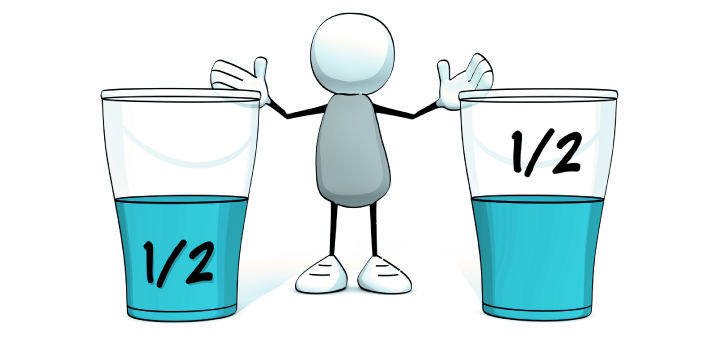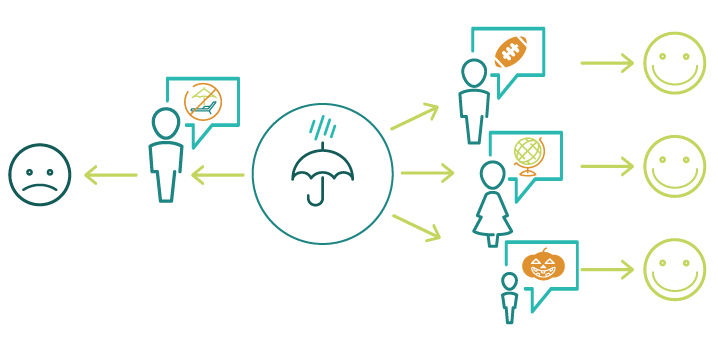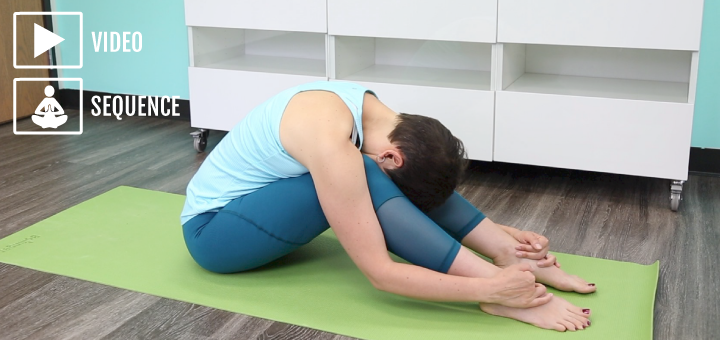Pratipaksha bhavana – the most powerful tool of mind control and emotional regulation

I used to have a rather complicated relationship with my paternal grandmother. When I was little, she had a looming presence in my life, often shaming me for the smallest of real and perceived indiscretions. I grew up with this uneasy feeling that I should always be ashamed of myself for something, but it never came up to the level of conscious examination. When I moved to the United States almost 20 years ago, my grandmother wrote me a scathing letter; each line of it was dripping with disdain. She accused me of betraying the country that my grandfather had fought for in World War II, said that she couldn’t bear to look her friends in the eye because of me, and so on. I was stunned but filed that experience away without really facing it. The letter had continued to pop up in my consciousness throughout the years paired with that uneasy feeling of shame.
One day, I mentioned a letter to my friend, and she had an unexpected reaction. She said: “What a gift your grandmother gave you!” What?! A gift?! “Well, – she continued, – before the letter, you had no idea why you kept feeling shame for no reason, but the letter brought it out in the open. It also showed you that it is much more about your grandmother’s demons than your own.” And just like that, the letter completely lost its menacing power and became an important tool in my self-exploration. The letter itself hasn’t changed, but how I looked at it has changed dramatically. This is an example of what the yoga tradition calls pratipaksha bhavana, and modern science refers to it as cognitive reframing or reappraisal.
Yoga sutra 2.33 recommends: When disturbed by negative thoughts, cultivate the opposite mental attitude (Vitarka-badhane pratipaksha-bhavanam). Kevin Ochsner, who studies the neuroscience of reappraisal at Columbia University, puts it this way: “Our emotional responses ultimately flow out of our appraisals of the world, and if we can shift those appraisals, we shift our emotional responses.”(1) Reappraisal basically means consciously choosing how you perceive any situation, which has an impact on the kind of emotions that will emerge from it.
For example, we use the image of a glass half-full or half-empty to describe how different people see the world. The proverbial glass is the same, but where an optimist sees abundance and opportunity, a pessimist sees a reason to despair. We tend to think of it as a genetic predisposition, an inherent characteristic that each one of us has, but often it is situational. After all, the glass is never just a glass. The mind interprets the glass through the lens of the current environment and past experience and tries to fit it in somewhere within the map of our world. The sutra (and neuroscience) tells us that you have a choice in how you interpret that glass as long as you put a conscious effort into it.
The implications of that proposition are huge. Since our emotions flow out of our perception of the world, if that perception is reframed, our emotions will change, too. This applies to mundane experiences (for example, choosing not to be bothered by traffic and instead enjoy an audiobook that you are listening to) and life-altering events (for example, choosing to see downsizing at work as an opportunity to pursue your true calling).
Science shows that just having a perception of choice in any given situation helps you feel less fearful and uncertain. “Finding a way to make a choice, however small, seems to have a measurable impact on the brain, shifting you from an away response to a toward response.”(1) When you are in a “toward” state of mind, it is much easier to reflect on the situation and come up with a more effective solution.
It goes like this: first, you recognize that you have a choice in how you react; then, you make a choice to act in a way that would be more beneficial to you, and the consequences of that choice can change the course of your day, your relationship, your career, or your life. This is what makes reappraisal so incredibly powerful. My reappraisal of that letter made me much more compassionate and understanding toward my grandmother and helped me release a lot of inner baggage. We have a much better relationship now, not because we’d buried the hatchet (there was nothing to bury), but because we both reframed the way we perceived each other. Reappraisal is not about suppressing or avoiding; it is about changing the outlook.

Let’s get specific about the four types of reappraisal you can do and how they can impact your life.
Resources
Your Brain at Work: Strategies for Overcoming Distraction, Regaining Focus, and Working Smarter All Day Long by David Rock









Dear Olga,
So many things in this post really hit home for me, thank you very much. In particular, the lesson in moving towards something life-giving, rather than away from pain habits, is a big relief. Blessings on your work and how you share it.
Thank you Karusia; I am so happy to hear that it resonated with you!
What a powerful, uplifting piece of writing to start my day! Thank you so much!
Thank you Sally!
Great post – thank you!
Thank you Anne!
Olga, thank for your talent in explaining these teachings in a way the is so applicable in modern life. You are a source of inspiration to me as well as a connection to the viniyoga lineage. Thank you
Thank you Jane! I truly believe that those ancient teachings are relevant to us today, especially with all the confirmation we get from neuroscience 🙂
Hello! Ancient yogis were so brilliant, insightful, and profound. They said so many things in so few words. Thanks for sharing this wisdom today!
Agreed! I love the potency of those teachings 🙂
This piece is so timely in my life! For myself and my teenage son. He is a senior this year and has a lot of changes coming. Due to his fear, he is viewing all things through a half empty glass. This discussion of the sutra and modern science has given me a great direction on how to help him change his perspective. Choice!! It’s always there, but boy how we forget.
Happy to hear that it was helpful to you Joanne! Transitional times are certainly the hardest. I guess, if we apply pratipaksha bhavana here, we can look at them as the times of most growth, too 🙂 I’m wishing the best to you and your son during this transitional process.
Brilliant and insightful. Thank you very much for sharing..
Thank you Tack!
Olga, beautiful example. The first step – recognizing “choice” is usually the most difficult because the mind wants to automatically hit the emotional/mind replay button. Once one can “see there is a choice” then the opportunity for unlearning can take place. As perception changes releasing a samskara, understanding, acceptance and gratitude arise. It is both an “aha” moment, and a lifting of pain.
Thank you for your comment Wendy! I can certainly see how it relates to samskaras. I love the whole idea of “rewiring” the brain, but it sure does take a lot of practice! 🙂
Wow- beautifully told. I knew I liked your thinking already (starting with even the subtitle of the site) but this really confirms it. Interestingly- the ancient Stoics had very similar beliefs about the power of one’s outlook in shaping emotions. Thank you thank you!
Thank you Lizzie! I don’t know much about Stoics, but it always amazes me how some ideas run through many different cultures. It makes me think that they are meaningful to us as humans!
I really needed to hear this message today, thank you. My paternal grandmother was very hard on me as well, it’s taken me years to process the pain and to unravel an understanding from it. Your articles are always so interesting and engaging, thank you!
Thank you Heather! I am sorry to hear about your experience with your grandmother and happy to hear that you are on the healing path.
Good post, Olga! Namaste, Suzanne
Thank you Eva. In these days of impersonal email and tweets, many more people receive letters like this. Now we call it bullying, even if it is from our grandmother, aunt or sister. I had this sutra pointed out to me by a friend who didn’t even know yogic philosophy….the idea is universal.
How timely to read this today.
Pratipaksha bhavana is crucial in this time, more than ever, we must pivot our perceptions, keep our vibrations pure and true and focus on what can sustain us. Living in fear and projected trauma is flooding our collective consciousness. Reframing, so we may offer life infused prana to the collective is vital. Thank you Olga for your professionalism, your dedication and your pure heart. Namaste.
Thank you so much for this Olga!
I am very interested in the intersections of Eastern Philosophy and Western Psychotherapy being a student of both. In fact I was hoping to research this for my PhD. So happy I found your piece!